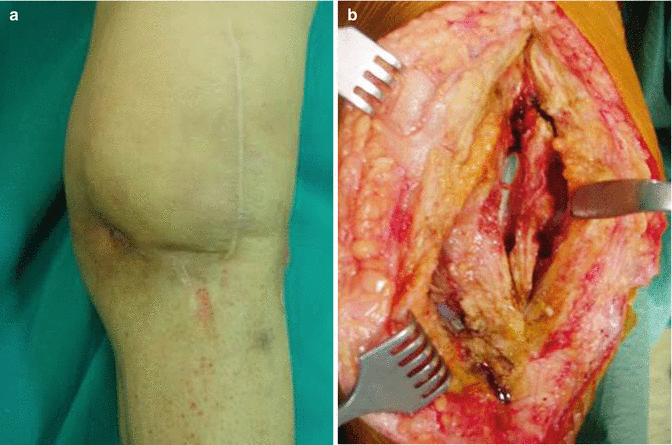
Surgery may be needed for knees with a severe bacterial infection. Most infections occur in the first two years after surgery.

When a knee replacement infection develops in the wound after surgery, it is considered a superficial knee infection.
Knee infection after surgery. Lost wages for work you miss because of the infection; Infection after knee replacement surgery is rare. The authors start out by classifying knee infections that occur after the primary (first) total knee replacement as one of four types:
But just like all the other major surgeries, there is always this risk of infection. After knee replacement surgery, it’s possible to develop an infection in the incision. Periprosthetic infection remains a frequent complication after total knee arthroplasty.
An infection, whether it’s superficial or on a deeper level may develop as early as the duration of the hospital visit or arise shortly after being released while home. Knee infection is a serious medical condition that needs immediate treatment. Why consider knee joint replacement and hip joint replacement surgery
Screening of the colonized area is important to prevent possible transient bacteremia. Although it most commonly occurs in the first few weeks after surgery, a small risk of developing a late infection months or years after the procedure does exist. Because doctors want to avoid infections, you’ll probably be advised to avoid dental work immediately after your tkr.
Medical bills to treat the infection; Surgeries performed to repair torn cartilage or. Types of infections after knee replacement surgery.
This is when 60 to 70 percent of prosthetic joint infections occur. Knee replacement surgery is regarded as the most effective solution that relieves pain and improves function in patients with osteoarthritis.it gives a fresh breathe of life to the people who have been suffering from the pain the knee pain. If you develop an infection in and around your knee after knee replacement, it can be one of the worst complications to occur.
The damages the hospital and doctor may be responsible for as a result of a surgical infection include: Artificial joints can become infected at the time of your surgery, or even years after your surgery. After 2 years, the chance of infection goes down to about 0.5%.
Had a knee revision after infection from tkr surgery. When a knee replacement infection develops in the wound after surgery, it is considered a superficial knee infection. Only about 50% of patients experience an eradication of infection (vasso & panni, 2014).
Infection may occur followed by a knee replacement surgery or trauma and is usually caused by bacteria. Can a tooth infection create a problem for you after knee replacement surgery? Everyone who has a knee replaced is at risk for a deep infection.
This infection is usually caused by staphylococcus spp. After knee replacement surgery, it�s conceivable to build up a disease in the entry point. Emotional distress resulting from the infection;
The surgical approach to an infected knee is similar to most revision procedures and is the same for static and dynamic spacers. Have been doing stretching, exercise, and massage to control pain. Pain and suffering the infection causes you;
You can expect periodic blood tests, needle aspirations, or cultures to determine if the antibiotics are working. You may develop a minor infection in the hospital or when you go home. Infection after a hip or knee replacement can be a devastating complication.
While infection is an uncommon cause of pain after knee arthroscopy, it is one that needs to be at the top of everyone’s list considering that early treatment is important to have a good chance of recovery. After the patient is given anesthesia and intravenous prophylactic antibiotics, the knee is prepared for surgery. If the infection develops around the artificial implant that was used to replace the knee joint, it is called a deep knee infection.
A knee replacement infection may develop in the wound after surgery. Infection may spread to the space of the knee joint or deep layers of your knee causing serious complications. Surgery may be needed for knees with a severe bacterial infection.
Most infections occur in the first two years after surgery. If the abscess of bacteria has created a hole in the bone, a. Symptoms of knee infection the most common symptom.
See knee infection stock video clips. It may also occur around the artificial implant that is used to replace. After several months still have some residual pain that wakes me at night.
Have been diagnosed as irritated it band. In the first 2 years after surgery, the chance of developing an infection is estimated at 1.5%. Superficial infections usually occur soon after your surgery.
Punitive damages depending on state law Infections can happen to the joint replacement infection even years after the surgery. This involves surgical debridement (cleaning/washing, removing infected tissue) of the infected knee, followed by 6 weeks of iv antibiotics.
Surgical treatment methods may also be used when the knee infection is severe, such as in advanced cases of osteomyelitis.